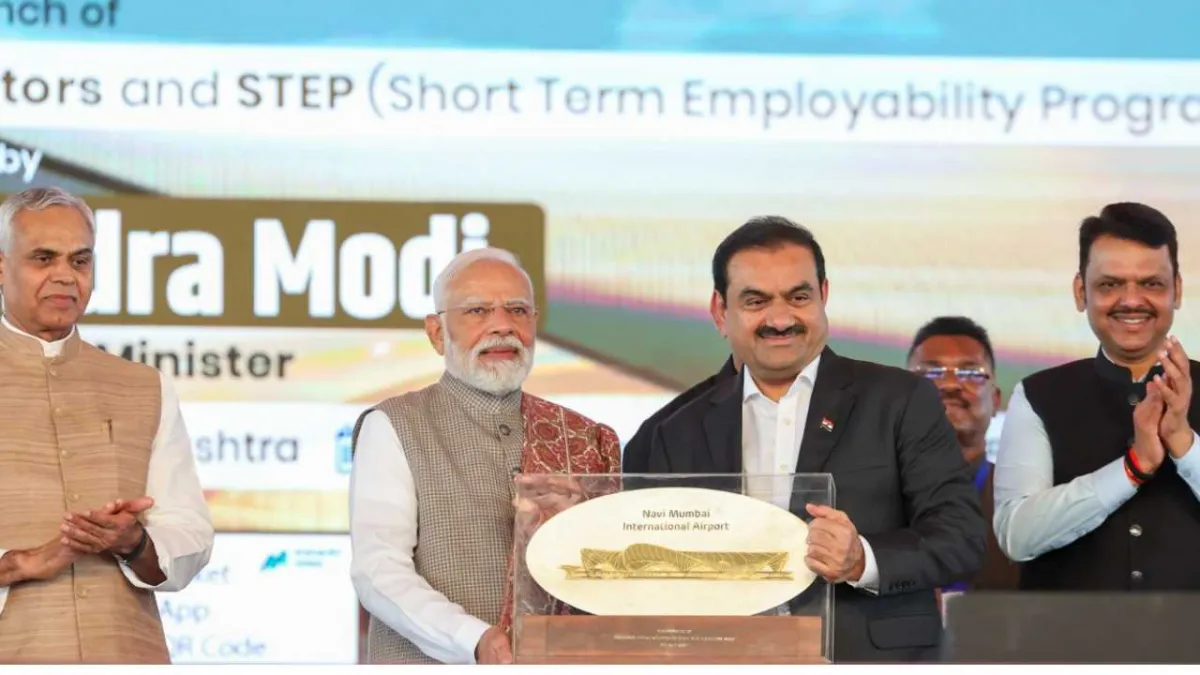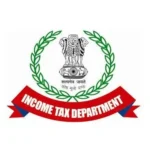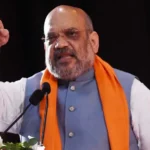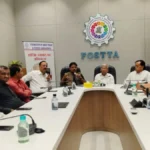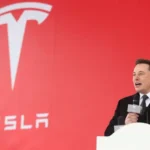Prime Minister Narendra Modi said on Wednesday that Congress should tell the country who prevented India from carrying out military retaliation against Pakistan following the 26/11 Mumbai terrorist attacks. He also accused the party of weakening the fight against terrorism while in power.
Modi alleged that the Congress-led UPA government (2004-14) weakened the fight against terrorism, which has cost the country dearly.
Modi said, “A Congress leader, who has also served as Union Home Minister, has stated that a country prevented India from military retaliation after the 26/11 Mumbai terrorist attacks in 2008. The party should provide clarification.”
Modi made these remarks while addressing a public gathering after inaugurating the first phase of Navi Mumbai International Airport, the Mumbai Metro Aqua Line, and other projects.
The Prime Minister emphasized that Mumbai has always been the country’s financial capital and a vibrant metropolis, making it vulnerable to terrorist attacks.
Prime Minister Modi said, “It was because of this very characteristic of the city that terrorists targeted it in 2008. If we believe a top Congress leader, who has also served as a Union Minister, the then UPA government retreated from attacking Pakistan under pressure from a country, even though our defense forces were ready and the nation’s sentiment was for attacking the neighboring country.”
Modi was clearly referring to comments by a former Union Home Minister who stated that he personally favored military retaliation against Pakistan after the attacks, but the UPA government decided to take diplomatic steps against Islamabad as per the foreign ministry’s view.
The former minister had said that global powers including America wanted India not to start a war with Pakistan.
In November 2008, heavily armed terrorists from Pakistan created terror in Mumbai for three days, killing 166 people including American citizens and injuring more than 300.
Modi alleged that Congress’s weakness in firmly combating terrorism strengthened the hands of terrorists. He emphasized that the country has the right to know who prevented India from carrying out military retaliation after the 26/11 attacks.
He said, “Congress weakened the fight against terrorism and compromised national security, which cost India dearly and resulted in the loss of numerous lives.”
The Prime Minister said that in contrast, today’s India gives a befitting response to terrorist attacks by entering the enemy’s territory.
Referring to ‘Operation Sindhu’ launched after the Pahalgam terrorist attack, Modi said, “For us, nothing is more important than the security of our country and its citizens.”
Without naming the opposition Maha Vikas Aghadi (MVA) that was in power in Maharashtra from November 2019 to June 2022, Modi said that after a long wait, the Mumbai region has got its second international airport. He said that massive corruption created obstacles to development during the previous government.
He said, “This (creating obstacles to development) is no less than a sin.”
He said, “Speed and progress are the identity of a developed India where people’s welfare is the top priority.”
The Prime Minister said that under the BJP-led government at the center over the past 11 years, the country has been progressing in this direction.
He said that whether it’s Vande Bharat trains, accelerating the bullet train project, constructing new highways, expressways, sea bridges, or connecting new cities, speed and development can be seen everywhere in the country.
The Prime Minister said that the lotus-shaped Navi Mumbai International Airport reflects the glimpse of a developed India.
He said, “This airport is located on the land of Shivaji Maharaj. It symbolizes culture and prosperity. Farmers and fishermen can now access global markets because of the airport.”
The Prime Minister said that in 2014, when he assumed office, there were 74 airports in the country, but now their number has increased to more than 160.
He said, “India has become the world’s third largest domestic aviation market. With new aircraft orders, there are now more opportunities for pilots, crew members, and other personnel. By the end of this decade, India will become the maintenance and repair hub for the global aviation sector.”
Modi said that with the new international airport and underground metro corridor, along with the ‘Mumbai One’ app launched on Wednesday, this metropolis will become Asia’s largest connectivity hub with seamless travel and connectivity.
He said that due to the

